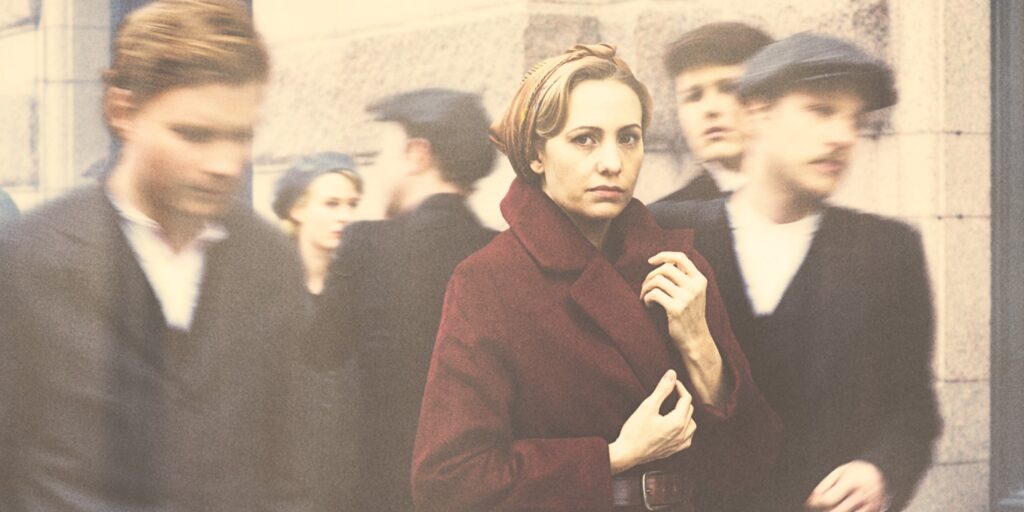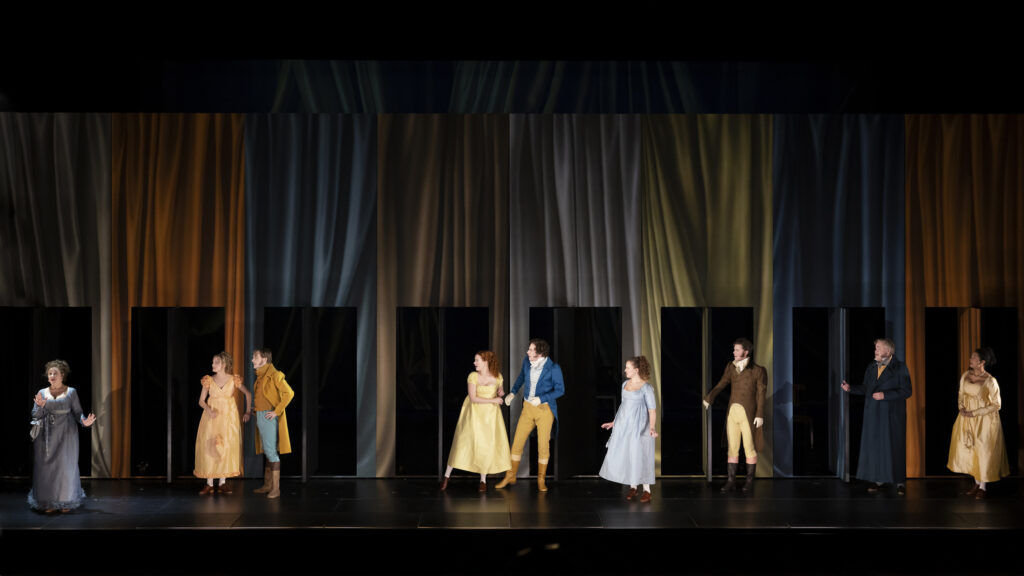Last week, I had the pleasure of seeing two operas, both composed fairly recently, by two Swedish composers. As someone who far too rarely gets out to actually enjoy a performance in an audience, getting two opportunities in the same week was not refreshing and artistically invigorating.
First was Mats Larsson Gothe’s The Promise, with a libretto by Susanne Marko. Marko, born in Budapest into a Jewish family in the late 1940s, was inspired by her parents’ harrowing experiences during World War II, how they are torn apart by the atrocities committed by the Nazis, but are ultimately reunited.
Gothe has described in interviews how he felt personally moved by the narrative when Marko first presented it to him. Marko, on her part, has called the story a “tale outside of time”, of the victims of war trying to reclaim their humanity, in spite of the seemingly insurmountable hopelessness of their situation. The opera’s war-centered narrative has painful present echoes both in Eastern Europe and the Middle East.
The Promise has been widely acclaimed by critics and became such a box-office success when it was first staged by the Royal Swedish Opera in 2022 that it’s currently wrapping up its second production, which seems to have turned out similarly popular. As a composer, Gothe has made statements like “I want to write music that moves people” and, with respect to The Promise, that he had to “let go of his demons and write attractive music”.

Ahead of the premiere in 2022, Gothe said in an interview that the opera has “no drawn-out recitatives. Here, I have been able to construct long vocal arcs, which is something I have wanted to do for years, that is, to discard the speech-like singing and connect the orchestra and voices more.”
Reading this got me very excited ahead of seeing The Promise myself, because one of my recurring disappointments in many modern operas is exactly this: that they come off as streams of sound with little to no discernible structure. Now perhaps I am simply too much of a simpleton, a mere fool without the intellectual capacity to understand the lofty ambitions of modern opera composers, but I seriously doubt that is at least the whole truth.
Experiencing The Promise honestly gave me a bit of hope for the kind of future I personally would like to see for opera as a genre. That hope was further strengthened later last week when I saw Daniel Nelson’s opera Pride and Prejudice at Härnösand Theatre, with Jane Austen’s novel adapted by librettist Sofia Fredén.
Nelson’s opera premiered back in 2011 at the renowned Vadstena Opera Academy and was picked up for a revival this season by Norrlandsoperan in Umeå, who is currently touring Northern Sweden with it after a number of performances in Umeå last month. I was fortunate to get to see it when they came to Härnösand. Additionally, the singers included four old friends of mine, now up and coming opera singers!

Right away, Nelson placed his opera in the proud tradition of composers like Mozart and Rossini, making me and probably many others (the theatre was pretty much packed!) feel instantly at home. That’s not to say the music sounded like something from the 18th century; while Nelson clearly used the classical comic opera model as a baseline – with, for example, spoken dialogue as well as sung – his musical content was plainly contemporary.
Like Gothe, Nelson has written several operas in the past. Regarding this one, he described the interesting dialogue that emerges between the audience and the authors when adapting such a well-known work as Pride and Prejudice: “Before the piece is finished, people love to tell you how they think the story should be portrayed, and afterwards, they want to discuss the differences between their expectations and their experience.”
Having heard regrettably little of Nelson’s music prior to this opera, I didn’t really know what to expect. Right before taking my seat, I spoke with some friends in the foyer who had seen the opera at Vadstena in 2011 and who told me that, if they knew me well enough, it would be right up my alley. And it was.
(In fact, I found myself thinking more than once that Nelson’s music felt like something I could have written, myself. It was not meant as a boast, mind you, but rather a sense of musical kinship.)
Björkman’s highlighting Nelson’s craftsmanship is what, for me, really elevates the opera from banality to greatness. His melodies and thematic material may be easy to digest, but he developed his music in such a skilful and elegant way that it rarely felt boring. Add to that his excellent vocal writing – surpassing Gothe, in my humble opinion, in the way Nelson handled trios, quartets and larger ensemble sections – and delicious instrumentation (that I would like to take a closer look at and learn from!) for a 14-piece ensemble from Norrlandsoperan’s orchestra.
As work on my own short story opera is kicking into a higher gear, last week was a wonderful injection of excitement and inspiration to add to the library of great contemporary Swedish operas. Whether I and my librettist will lean more toward the outwardly attractive style of Pride and Prejudice or the more abstract, impenetrable style of The Promise, we will have to see. (Probably somewhere in between, what with the plot we have in mind…)
